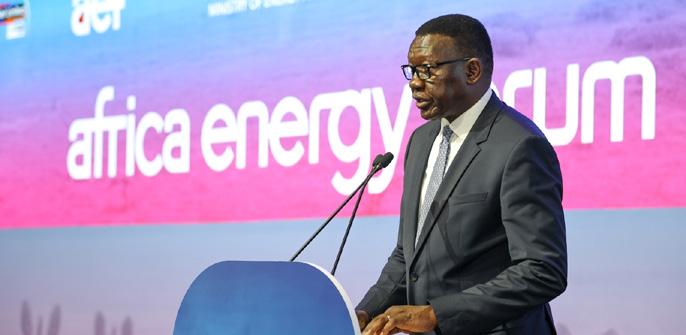
2 minute read
Mining Companies in Zambia
from theTradeEnvoy
For companies interested in establishing mining operations or opening mining companies in Zambia, the Ministry of Mines, under which the Chamber of Mines operates, is the first point of contact. These bodies facilitate an understanding of the legal and regulatory landscape, helping companies navigate the Mines and Minerals Development Act, the primary law governing the Zambian mining sector.
Notable mining companies
Advertisement
operating in Zambia include First Quantum Minerals Ltd, Barrick Gold Corporation, and Glencore Plc. These major players have significantly contributed to the growth and development of the Zambian mining sector.
Artisanal and Small-scale Mining (ASM) in Zambia
Beyond the large-scale mining companies, the artisanal and small-scale mining (ASM) sector is a crucial aspect of Zambia’s mining landscape. According to the United Nations, approximately 20 million people work in ASM, accounting for 45 percent of all mining activity. In Sub-Saharan Africa, the impact of abandoned mines on human and ecosystem health is a significant issue that has not been adequately addressed. For many households in
Zambia, ASM is deeply entrenched in cultural traditions, providing essential livelihoods.
Sustainable Mining A Priority
The United Nations Environment Programme (UNEP) emphasizes that unsustainability in resource utilization and illegal activities have cost Africa an estimated $195 billion annually through illicit financial flows, illegal mining, illegal logging, unregulated fishing, and environmental degradation. This massive loss underlines the urgency for sustainable practices in the mining sector. Africa’s future growth and prosperity hinge on harnessing its vast natural resources sustainably and equitably.
The African Ministerial Conference on the Environment (AMCEN) also recognizes that natural capital underpins the continent’s economy. With a call for sustainable wealth creation and investment from the use of natural resources, the conference envisions meeting the United Nations’ 2030 Agenda on Sustainable Development and the Africa Union’s Agenda 2063.
Renewable Energy Zambia’s Future
The success of the Mining Indaba 2023 event highlighted the resolve of stakeholders in Africa’s mining sector to move towards sustainable and renewable practices. As the world transitions towards net-zero emissions, it is imperative for Zambia and Africa at large to leverage their vast resources efficiently and responsibly.
Efforts are underway to integrate into the chemical space, particularly the floro-chemical market valued at $21 billion globally. Furthermore, a transition to green energy, particularly in the form of green hydrogen, has been identified as a promising opportunity for the mining industry.
While challenges remain, particularly in areas of exploration and funding, Africa’s mining sector is on a positive trajectory. With sound policy and robust regulatory regimes, Africa can tap into its vast mineral wealth to power a sustainable and prosperous future. This potential is not lost on investors and industry players who recognize that with the right approach, Africa’s mining sector can deliver significant economic, social, and environmental benefits.
However, more work needs to be done. Stakeholders across the board, from policymakers to industry players and local communities, must continue to collaborate and innovate to ensure the mining sector’s sustainability. The future of mining in Africa depends on it.










